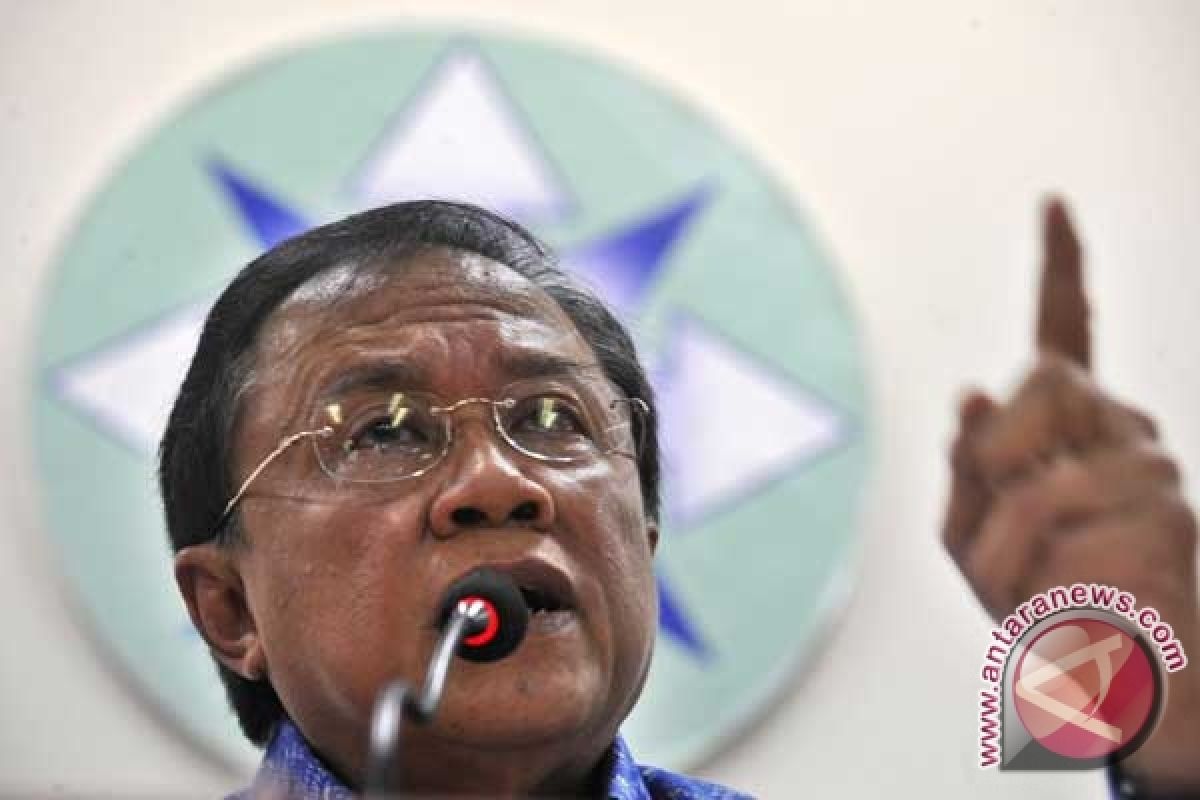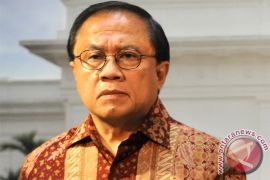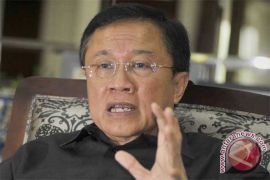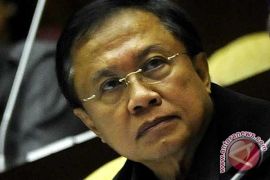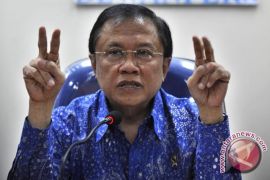Along with Media Group`s lawyer OC Kaligis, Metro TV Director Suryopratomo, Metro TV`s Deputy Director Sugeng Suprawoto and Head of Media Indonesia daily`s News Division Gaudensius Suhardi came to national police headquarters at 3.15 PM on Saturday.
The report to the police was made after Dipo ignored media Group`s three-day demand that he publicly apologized for his recent call for boycotting Metro TV and Media Indonesia daily.
The controversial boycott call was echoed by Dipo Alam on February 21 in response to Metro TV, TV One, and Media Indonesia`s critical news reporting on the government`s policies.
In the cabinet secretary`s points of view, those three influential media had always biased and cornered the government in their news coverages. Therefore, Dipo Alam argued that government bodies need not put advertisements in or become news sources for those media outlets.
Metro TV and Media Indonesia daily belong to Surya Paloh, successful media businessman who was active in the Golkar Party and currently owns an influential organization called "National Democrat".
TV One itself is owned by Golkar Party`s chairman Aburizal Bakrie who is also former cabinet member of President Susilo Bambang Yudhoyono.
Media Group`s lawyer, OC Kaligis, accused Dipo Alam of violating Article 18 Point 1 of Law Number 40/1999 on the National Press and Article 52 of Law Number 11/2008 on Public Information Openness.
"We see Dipo has violated the press freedom," he said.
Dipo Alam himself has played down Media Group`s legal move, saying that he was ready for having differences of opinions and letting the court make its decision.
He said, if that matter was brought into the legal sphere, like the lyrics of The Beatles` song, "Hello Goodbye", he would say "You say yes, I say no. You say goodbye and I say hello."
Dipo argued that there was nothing wrong with his remarks and none of laws that he had violated. Therefore he need not apologize.
Instead, he consistently defended his statement on those three media, arguing that it was meant to criticize the media in order that they would "not become a tyranny" and "disseminate negative propaganda" that would only threaten the nation and state`s interests.
In responding to the discourse of Dipo Alam versus critical media, noted sociologist from Syarif Hidayatullah Islamic State University, Dr.Musni Umar, defended Dipo`s political stance.
In democracy, disagreement and different political stances were acceptable. Even in Islam, different opinions were acceptable, he said.
"The political stance and steps that Dipo Alam has taken so far must be respected and appreciated as we also respect those, who criticize and disagree with the president`s leadership," Dr.Musni Umar argued.
If so, why should Dipo Alam`s recent threat to certain media that were so critical to the government be bitterly reacted? he asked.
There were at least three reasons for understanding this discourse. The first argument was related to difference of interests. "This is so natural in real politics because an everlasting friend is only interest," he said.
The second argument was related to the disturbance of interests. In this context, becoming an opposition within a governance in a country brought a consequence.
Those in power would defend themselves from any movement and criticism if they felt disturbed. One of the actions that they might take was boycotting their opponents` interests.
This was what Dipo Alam had done, he said.
The third argument was related to a culture of not easily accepting criticism. Print and electronic media belonged to the capital owners but they were run by journalists, Umar argued.
The people behind any mass media were not "angels". Therefore, they could be right or wrong. Referring to the fact that both parties (government and media) had their own interests, they could be united but could also be disunited, he said.
By considering this argument, there was nothing wrong with Dipo Alam`s political stance regarding his remarks on the media, he said.
Apart from this academic explanation, Dipo Alam`s remarks had sparked pros and cons in the society.
For Golkar Party Chairman Aburizal Bakrie, it was not appropriate to threaten the mass media in Indonesia`s democratic and openness era.
"It (threatening media) is most inappropriate," he said.
Instead, it might have only been a "slip of his tongue", he said adding that threatening the print and electronic media that were critical to the government was not appropriate in this democratic era.
In connection with this controversial remark, the Press Council had recently summoned Dipo Alam.
What sort of Indonesian journalists and media does the government actually like? The answer seems so clear: the media owners and workers, who have "integrity and professionalism".
As ever conveyed by Vice President Boediono in August 2010, unprofessional journalists could damage the system of government.
Therefore, the integrity and professionalism of media workers were an urgent thing for Indonesia, he said.
For Boediono, the press as the fourth estate of democracy was so influential that its role in developing sound economic and democratic systems was quite significant.
"Information should have values and contain truths. I believe that the function (of disseminating credible information) should be an inherent part of every journalist`s behavior," he said.
(T.R013/A/H-NG/A014)
Reporter: Rahmad Nasution
Editor: Priyambodo RH
Copyright © ANTARA 2011
